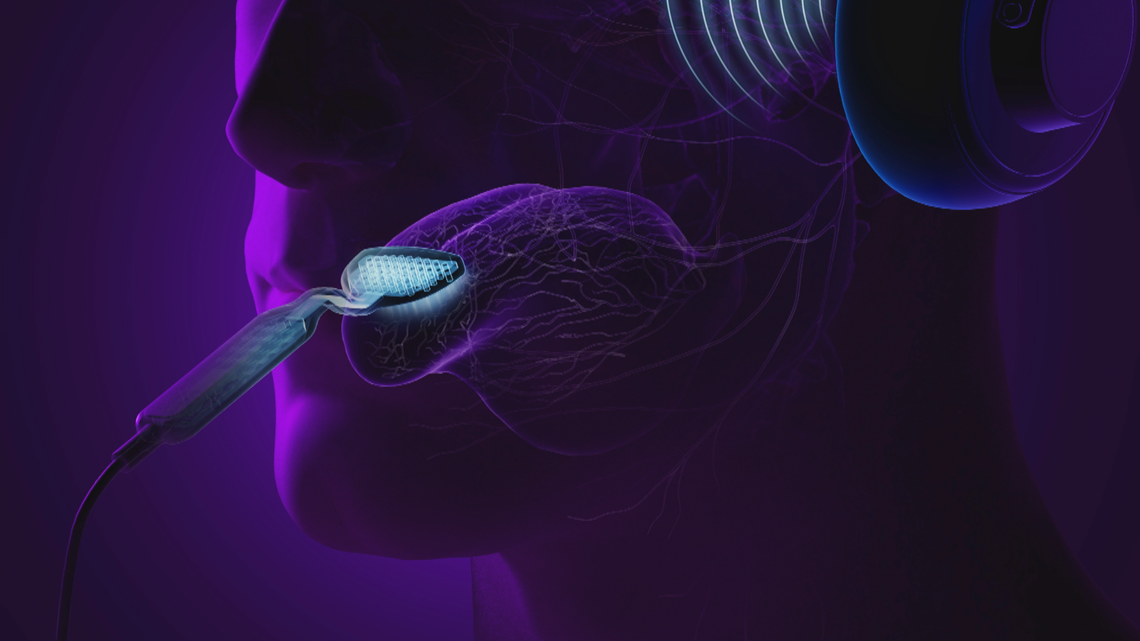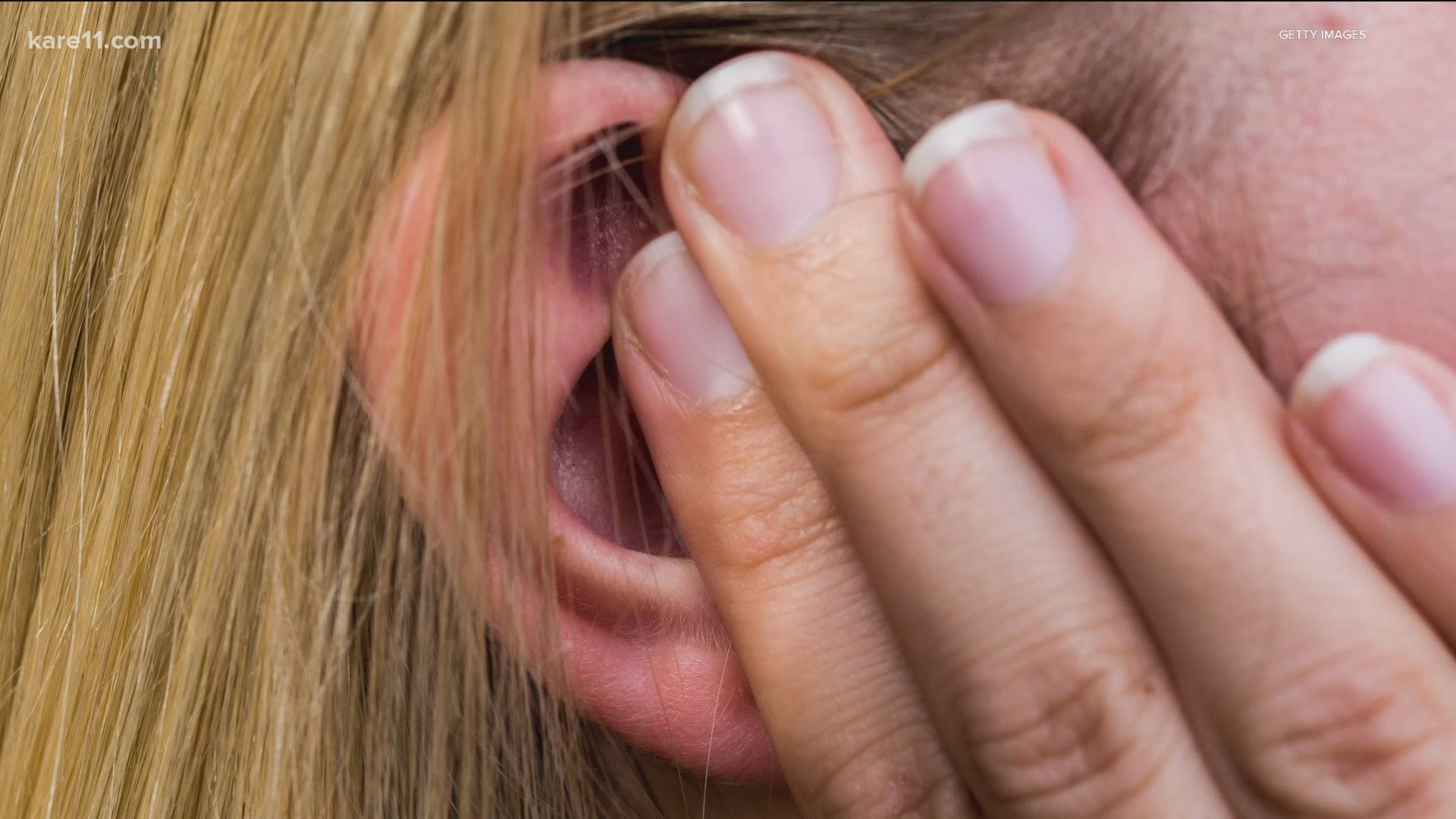MINNEAPOLIS, Minnesota — A new study represents the largest and longest followed-up clinical trial ever conducted in the tinnitus field.
Tinnitus is the perception of noise or ringing in the ears, according to Mayo Clinic. It affects 10-15% of people worldwide.
"I have ringing in my ears all the time. 24/7," said Estefan Saucedo, a digital content producer at KARE 11. "When you go to the doctor, most doctors will tell you that it's just something that you have to learn how to live with because there's nothing they can do about it. I know that's something really difficult to hear for a lot of us."
But new research hopes to help those who suffer from it. Hubert Lim, a University of Minnesota associate professor, is the senior author of the study.
"There is one ongoing hypothesis or idea that tinnitus is caused by some form of hearing loss. Maybe not everyone but a good number of people will have some lack of input in their hearing system and as a result the brain will try to compensate for that. We don't fully know why yet but in a good number of those individuals their brain tries to compensate but overcompensates," Lim explained.
Lim is also the chief scientific officer at Neuromod Devices Limited, an Irish medical device company that sponsored the study.
The tinnitus treatment device, now called Lenire, was developed by Neuromod. It pairs sound with electrical stimulation on the tongue to treat tinnitus.


"Kind of tells the brain, 'Hey, this is important. Listen to these sounds.' It's not just sound coming in but we're actually stimulating another modality to make the brain more aware of it. Then we kind of switch it around, different sounds switching around different neurons in your brain and the idea then is the brain can begin to detach itself or focus away from that tinnitus," Lim said.
The study enrolled 326 participants and was conducted between 2016-2019. For the trial, participants were asked to use the device for 60 minutes every day for 12 weeks.
Results showed about 86% of treatment compliant participants reported an improvement in tinnitus symptom severity and more than 80% experienced continued improvements 12 months after treatment.
According to Lim, the improvements do not necessarily mean the loudness in tinnitus has been reduced although that may happen.
"So it's more about how they're feeling... the stress, the reaction, the severity, the symptom severity of the tinnitus," Lim said.
77.8% of participants said they would recommend the device to others with tinnitus.
"We're not eliminating or curing tinnitus... think of it as we're dampening it, we're reducing it and the hope is that it's enough reduction of the reaction to it that individuals can continue with their daily lives," Lim said.
Saucedo has lived with tinnitus for five years and participated in a clinical trial involving cognitive behavioral therapy. His advice for those experiencing tinnitus is to try to continue living life as normal with the exception of going to places that are very loud, like concerts.
For those who want to be mindful of noise levels, Saucedo recommends using an app on your phone that measures decibels in your environment.
But even as Saucedo has learned ways to manage his tinnitus, he said clinical trials like this give him hope.
"Us, who have severe tinnitus, we experience it 24/7. So I know that even if we had a couple hours of relief that would be greatly appreciated," Saucedo said.
The device is available in Europe and Neuromod is working to get FDA approval in the United States. Meanwhile, Lim said they're wrapping up another clinical trial and their research continues.

